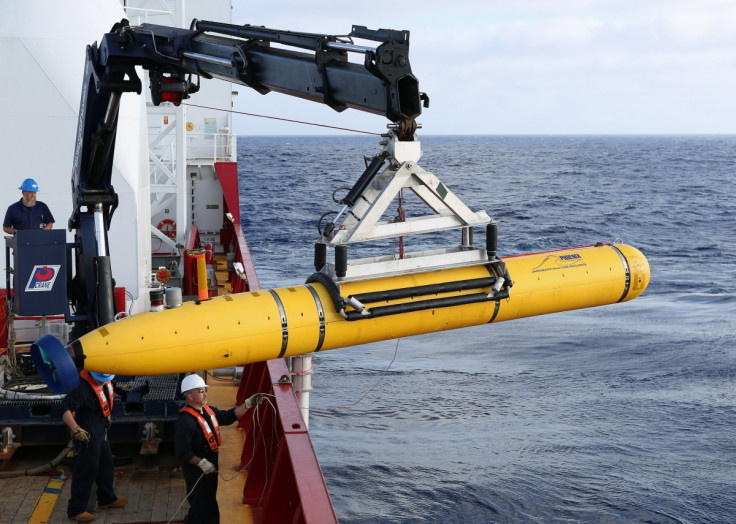Malaysia Airlines MH370: One Week Left to Search Before Credible Leads Exhausted

The best leads in the underwater search for Malaysia Airlines flight MH370 will be exhausted in one week, the Australian prime minister has warned.
Tony Abbott told the Wall Street Journal that the team searching for the missing Boeing 777-200ER would have to "rethink" their tactics if the Bluefin-21 mini-submarine fails to locate the wreckage.
The underwater search is currently underway in the southern Indian Ocean, around 2200km northwest of Perth, after the first two attempts were aborted due to techincal faults.
Mr Abbott said: "We believe that search will be completed within a week or so. If we don't find wreckage, we stop, we regroup, we reconsider."
The Joint Agency Coordination Centre, based in Australia, is leading the underwater search, in which the autonomous Bluefin-21 vehicle will create a sonar map of the area to chart any debris on the seabed.
The Bluefin-21 has now finally completed its first full overnight mission and has so far searched around 56 miles. The Bluefin-21 has been operating for two days in a small area of the Indian Ocean that Australian search authorities believe to be the most likely place the missing plane crashed.
Yet an analysis of sonar data retrieved from the submersible during the first two missions has failed to identify any new leads.
Mr Abbott added: "My determination for Australia is that we will do whatever we reasonably can to resolve the mystery. If the current search turns up nothing, we won't abandon it, we will simply move to a different phase."
He said he remained confident that the search teams were in the right area to find debris from MH370, based on the analysis of the electronic signals detected by equipment towed by the Australian naval vessel ADV Ocean Shield.
No new signals have been heard from the search area since 8 April, amid concerns the batteries of the plane's flight data and cockpit voice recorders have expired. The black boxes have a battery life of 30 days and despite the "pings" picked up by the equipment, they have not yet been recovered.
The discovery of the equipment is essential for investigators to find out what happened to the Boeing 777, which disappeared on 8 March. The plane had been travelling from Kuala Lumpur to Beijing, with 239 people on board.
By analysing satellite data, officials believe the plane diverted away from its intended flight path and crashed into the southern Indian Ocean. No explanation has been given for the diversion and investigators are exploring four possibilities; including sabotage, hijacking and personal or psychological problems relating to the crew and passengers.
If the initial search fails to unearth any evidence of the missing aircraft, a second sweep of the 60km by 40km area currently being searched could be undertaken.
The search area may also be expanded to a wider zone, over the 500 miles surrounding the area where the signals believed to be from the black boxes were detected.
Martin Dolan, chief commissioner of the Australian Transport Safety Bureau, told the Wall Street Journal that another additional search could take place along MH370's last known trajectory, an area around 370 miles by 30 miles.
© Copyright IBTimes 2025. All rights reserved.




















